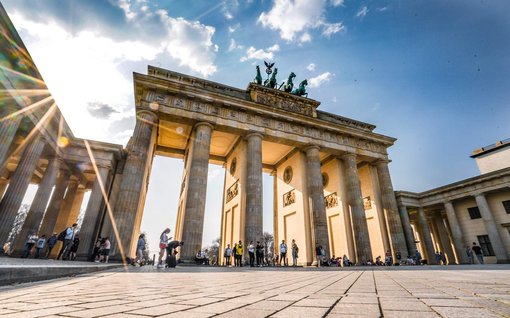Forty Years Later Castro Remains in Power
Archive by Erudera News Oct 28, 2002

OCALA — Forty years ago today, Fidel Castro was enraged, fuming over his betrayal by Russian Premier Nikita Krushchev. Today, he is still in power in Cuba. In many respects, the whole world won when the Cuban Missile Crisis concluded on this day in 1962. Nuclear war had been avoided. “It’s very clear that humanity was the big winner,” said Philip Brenner, a professor of International Relations at American University in Washington, D.C., and co-author, with James Blight, of the recent book, “Sad and Luminous Days: Cuba’s Struggle With the Superpowers After the Missile Crisis.” “That is the closest we’ve come to nuclear war,” he said. “In that sense, there were a billion winners.” It’s difficult to determine who were the heroes or the goats in the Crisis — if there are implications for today, lessons for tomorrow.
“It was much more important than many of us realized at the time,” said Pedro Pequeno, a professor of Latin American and Caribbean Affairs at Rollins College in Orlando. “We were on the brink of nuclear war. I think the problem was solved with a lot of luck. Kennedy took a lot of credit for it, but I think it was more luck than strategy. The Russians were fearful of our nuclear capability in Turkey — our bases in the soft underbelly of Russia. “With Castro out of the picture, it was a bartering situation. Luckily, happily, it was resolved.”
Within months of the removal of the missiles in Cuba, the U.S. began removing its missiles from Turkey. The diplomacy that brought the superpowers together created a basis for future compromise. “They had new respect for each other,” Brenner said. “The U.S. and Soviets were both victors in that respect. The balance of power became more stable. We struck the right balance, understanding the right of the Soviet Union to have weapons of mass destruction… just not in our backyard. That led very quickly to arms control, an agreement on a hotline. The two superpowers could both claim that they had won.”
“The loser,” Pequeno said, “was Fidel Castro… for two reasons. Although the deal gave him safeguards against any American invasion, Castro was kept in the dark until the deal was struck. He was very angry.. He lost a great deal of his leverage. If he thought he was the ‘Darling Boy’ of the Russians, he found he was not.
“Although he was a loser in credibility, he was able to solidify his revolution and was never again threatened by direct American involvement in Cuba. It gave him the green light to create police state… a quasi police state and he has enjoyed the benefits of that knowing the U.S. wasn’t going to become directly involved.”
“The one loser was Cuba,” said Brenner. “The Cubans were offended. They lost what they considered their weapons. The Soviets got the United States to take its missiles out of Turkey by April, 1963, but we wanted to take them out anyway. They were liquid-fueled rockets and it took six-to-eight hours to fuel them. We had already determined they were obsolete. Submarines were more easily hidden and a better deterrent. We really weren’t giving up very much.”
Without the missiles Castro was no longer a “player” — marginalized in the Cold War. “The Soviet weapons in Cuba put them on our strategic radar,” said Brenner. “Before that, in a war with the Soviets, targets in Europe and Asia were our first priority. With nuclear weapons, Cuba put itself on the frontline. The Soviets withdrew the missiles out of fear that the situation was getting out of hand. That was the same motive that Kennedy had — stopit before we can’t control it.
“The perception at the time was that the Soviets had backed down. That is how the Cubans interpreted it. They felt that it would allow the U.S. to attack Cuba. The Soviets took away weapons we didn’t ask to be removed. We didn’t know there were tactical nuclear weapons in Cuba. We didn’t know how many Soviet soldiers were in Cuba. Eventually, Castro convinced the Soviets to leave 3,000 soldiers in Cuba.”
Castro looked elsewhere for friends and enemies. “The way the Missile Crisis was resolved led Castro to engage in military adventurism elsewhere,” said Brenner. “He felt that the U.S. and USSR had more in common with each other — each seeking world domination –than with Cuba. He felt that all we were interested in was our own goals. Cuba was very much part of the Third World. With two-third of Cubans of African descent, it had ties with Africa. He wanted smaller nations, rich in oil and other resources to trade with each other.
“In 1961, he had encouraged the smaller nations to move out of the orbit of the superpowers. He wanted to take the focus off Cuba by creating many more Cubas — in Africa and in Latin America. In that way, we would be busy putting out fires elsewhere and not concentrate on Cuba.” Capt. Edward Kaplan, an assistant professor of history at the U.S. Air Force Academy, says the Cuban Missile Crisis was the pivot of the Cold War.
“Before 1962, the conflict was marked by a series of crises over Berlin, Turkey, Greece, Iran and other hotpots through the 1950s. Many of them were only resolved after saber-rattling by one side or the other. After the Crisis, both the U.S. and USSR tended to shy away from direct confrontation involving military threats. One notable exception was during the 1973 Arab-Israeli War when the U.S. adopted a very public nuclear alert to deter Soviet intervention on behalf of its allies.”
Ultimately, says Kaplan, the Cuban Missile Crisis was a factor in Krushchev’s fall from power. “The final major effect of the Cuban Missile Crisis was that it played a major part in Krushchev’s fall from power in he USSR,” he said. “Together with an economic / ecological disaster by a plan to raise cotton on a huge scale in central Asia, Krushchev was ousted in 1964 by other Soviet leaders.
“The Cuban Missile Crisis was a pivot in another sense as well. Before, all efforts at arms control were utter failures (Baruch Plan in 1946-47, Open Skies 1955, 1958 unofficial testing moratorium which was unilaterally broken by the Soviets in 1961). In 1963, the U.S. and USSR signed the Limited Test Ban Treaty which banned testing in the “three environments” of space, air, and water — effectively limiting them to underground tests.
This agreement, in turn, led to regular and continuing efforts by both sides to limit the arms race. Although both the USSR and US built up tremendous arsenals in the 1960s, and the USSR achieved rough parity, these contacts and talks continued. Ultimately, they led to the first true nuclear arms control treaty (i.e. involving caps on totals), SALT I in 1972.”
While there are applicable lessons to be learned and applied to current and future confrontations, well-known military author Bill Lind doesn’t think comparisons between the Cuban Missile Crisis and the current situation with Iraq are valid.
“The situation is entirely different,” said Lind. “The nature of the opposition is different. There is no real opposition in Saddam. There is no threat from Saddam Hussein… he is contained. The real threat to the United States is from non-state sponsored warfare.” Lind contends that by 1962, the Soviet leadership already understood Communism was a failed philosophy and more interested in maintaining its hold on eastern Europe.
“The Soviet Union’s leadership was cautious, more concerned about losing what they already had,” said Lind. “The leadership of non-state sponsored warfare is completely different. They have a whole different world view. They are not cautious, they are not risk averse. They are fighting for a belief, a cause, Islam or whatever else they’re fighting for.” Pequeno says we continue to make the same mistakes in the region. “We do not have a coherent foreign policy in the region,” he said.
“Our foreign policy has been to send in a ‘fire brigade’ — the Marines and Navy. Not having a policy in place, we opened ourselves to what (President Hugo) Chavez has created in Venezuela. They resent us because we make money, that certain people are the enemy because of who they are. Chavez may be unstable politically, but he is a political actor in an arena he has defined. I don’t think anyone is capable of bringing about a consensus in Venezuela.. the divisions run pretty deep.
He said he expects a similar situation to develop in Cuba. “If Fidel Castro and Raul Castro die tomorrow, I still see a dictatorship of the (Communist) party,” said Pequeno. “Some people see Cuba becoming open, Democratic. For 40 years, two generations of Cubans have grown up under this system. It is hard to predict the future for Cuba, but I feel strongly that any change will have to come from within. Any change from the outside and the internal diehards will say it is the imposition of the American system through underlings. Castro does not let anyone shine. There are capable Party members, but with any change, it will be hard to determine which ones will come through.”
Brenner says we learned the wrong lesson after the Missile Crisis. “The people who wrote about it focused narrowly on 13 days,” said Brenner. “Their idea was that in a game of chicken, the guy who stays tough and doesn’t flinch, wins. That was the conventional wisdom at the time. It is the wrong lesson. “Based on more recently disclosed information, it’s clear that the Cuban Missile Crisis was resolved because Krushchev and Kennedy found ways to compromise. Kennedy was flexible enough not to back Krushchev into a corner. If you back a superpower with nuclear weapons into a corner, it’s very dangerous — more likely that he may use those weapons.”
And that, says Brenner, is the lesson for today and for future leaders. “We have to find ways to accommodate the other leader — in a political sense, allow him to save face. We have to find ways to engage, not back the other side into a corner. And things will go wrong, people will make mistakes. You can’t afford to jump to conclusions.”
* * *
By October, 1962, Ocala’s Bob Durden had done his time in the active military as well as the Army Reserves, In the middle of that month, a large package arrived from the Department of the Army. Considering the timing, Durden and his wife were sure it was a call to return to active duty and were not anxious to open the packet. When they finally did, both were relieved to see it contained his final discharge papers. The Cuban Missile Crisis was over.
Recent Articles
Germany
Apr 16, 2024
United Kingdom
Apr 15, 2024
United States
Apr 12, 2024
France
Apr 12, 2024
United Kingdom
Apr 11, 2024


